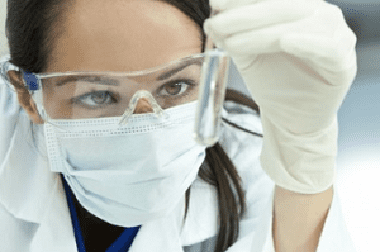Infectious diseases >>>> Coronavirus infection - prevention
Coronavirus infection - prevention.

The family of coronaviruses is quite extensive and not well understood. Until 2012, medicine observed cases of diseases in animals and humans, which proceeded without complications with a favorable prognosis. Since 2012, cases of disease in animals and humans have been reported, where the causative agent of the disease was a strain of coronavirus, later named MERS-CoV (Middle East Respiratory Syndrome CoV). This strain of coronavirus has been identified for the first time in the Middle East. A feature of the disease of MERS is its high contagiousness (high degree of infection - easy penetration of the virus into the body) and death.
In the last days of 2019, a new outbreak of coronavirus infection was recorded. And if the first serious outbreak of infection was recorded in camel camps, then a new outbreak of coronavirus is associated with the market for fish products, seafood and exotic animals for food (snakes, bats). This fact speaks in favor of the fact that outbreaks of coronavirus are directly related to the specifics of the life of the inhabitants of certain species of living beings in nature, which are carriers and transmit the infection to humans by contact, including eating.
For this reason, it is believed that the carriers of the coronavirus are animals. A person can become infected from an animal by contact, as well as by eating food of animal origin (meat, milk, fish, seafood, exotic animals) thermally insufficiently processed or not thermally processed. According to the latest events of 2020 in China, the facts of transmission of the virus from person to person have been officially confirmed, but scientists do not yet have a complete picture of the mechanism of transmission of the virus, they only clarify that the virus is transmitted by close contact and / or by airborne droplets.
The risk group includes medical workers who have close contacts with the sick, workers in farms and fisheries for breeding animals, fish, seafood. Hunters for exotic food of animal origin are at the forefront of risking their health. Especially at risk are elderly people with poor health, chronic diseases of the lungs, kidneys, weakened immunity, diabetes mellitus.
The clinical picture of coronavirus infection is nonspecific, so it can be easily confused with any other acute respiratory viral infection. Signs of coronavirus infection are manifested in the form of catarrhal phenomena (runny nose, inflammation of the nasopharynx, sore throat, dry cough without sputum separation), high fever, shortness of breath. The disease may be accompanied by diarrhea. Prodromal period - from 4 to 10 days or more.
At the moment, no effective treatment for coronavirus infection has been found, and symptomatic treatment is carried out depending on the clinic of the disease. For this reason, much attention is paid to the prevention of coronavirus infection, which includes refraining from traveling to regions where outbreaks of the disease have been recorded, and if urgently needed, protective equipment should be used (masks, respirators, goggles or screens, disposable gloves), washing hands after being on outside, using or touching common items (handrails in transport, handles for grocery strollers in a store, handles for lockers and doors in public places, banknotes - bills, coins).
In regions adjacent to foci of infection, people need to reduce communication in public places to zero. It is better to sit out the epidemic at home and prepare protective equipment for the necessary grocery outings.
Immunity support plays an important role in enhancing the body's resistance to viral infection. For this reason, you should not get carried away with alcohol, as a means of enhancing immunity - alcohol, on the contrary, weakens the body's defenses. It is better to dwell on the generally recognized immunostimulants, vitamins, reducing stress and physical stress on the body.
Prevention involves taking precautions when visiting farms, sheds, fish farms, camps, markets for animal products; washing hands after contact with animals; not eating livestock and fishery products that have not undergone proper heat treatment.

Read

Read



























